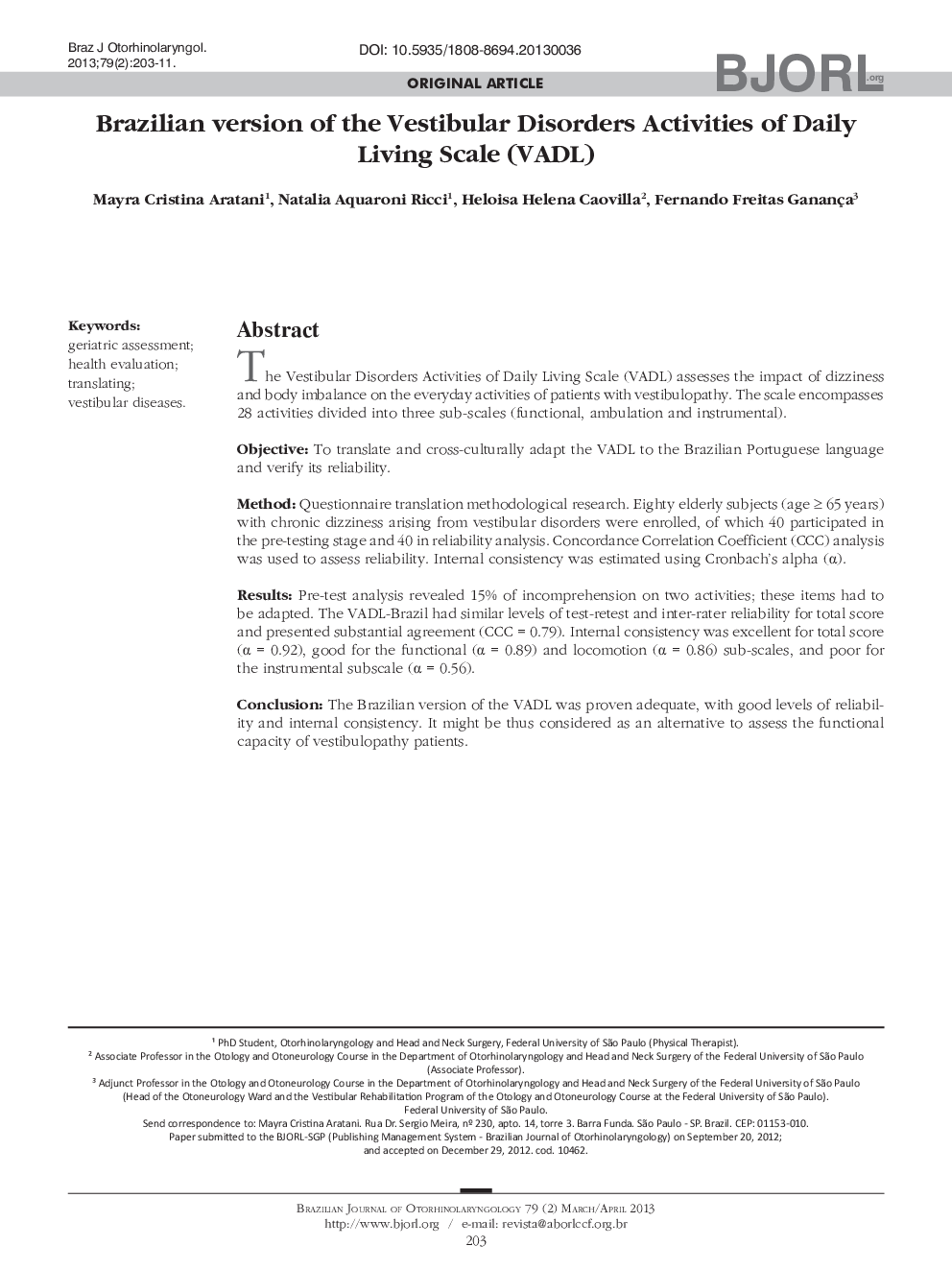| Article ID | Journal | Published Year | Pages | File Type |
|---|---|---|---|---|
| 4106679 | Brazilian Journal of Otorhinolaryngology | 2013 | 9 Pages |
The Vestibular Disorders Activities of Daily Living Scale (VADL) assesses the impact of dizziness and body imbalance on the everyday activities of patients with vestibulopathy. The scale encompasses 28 activities divided into three sub-scales (functional, ambulation and instrumental).ObjectiveTo translate and cross-culturally adapt the VADL to the Brazilian Portuguese language and verify its reliability.MethodQuestionnaire translation methodological research. Eighty elderly subjects (age ≥ 65 years) with chronic dizziness arising from vestibular disorders were enrolled, of which 40 participated in the pre-testing stage and 40 in reliability analysis. Concordance Correlation Coefficient (CCC) analysis was used to assess reliability. Internal consistency was estimated using Cronbach's alpha (α).ResultsPre-test analysis revealed 15% of incomprehension on two activities; these items had to be adapted. The VADL-Brazil had similar levels of test-retest and inter-rater reliability for total score and presented substantial agreement (CCC = 0.79). Internal consistency was excellent for total score (α= 0.92), good for the functional (α= 0.89) and locomotion (α= 0.86) sub-scales, and poor for the instrumental subscale (α= 0.56).ConclusionThe Brazilian version of the VADL was proven adequate, with good levels of reliability and internal consistency. It might be thus considered as an alternative to assess the functional capacity of vestibulopathy patients.
